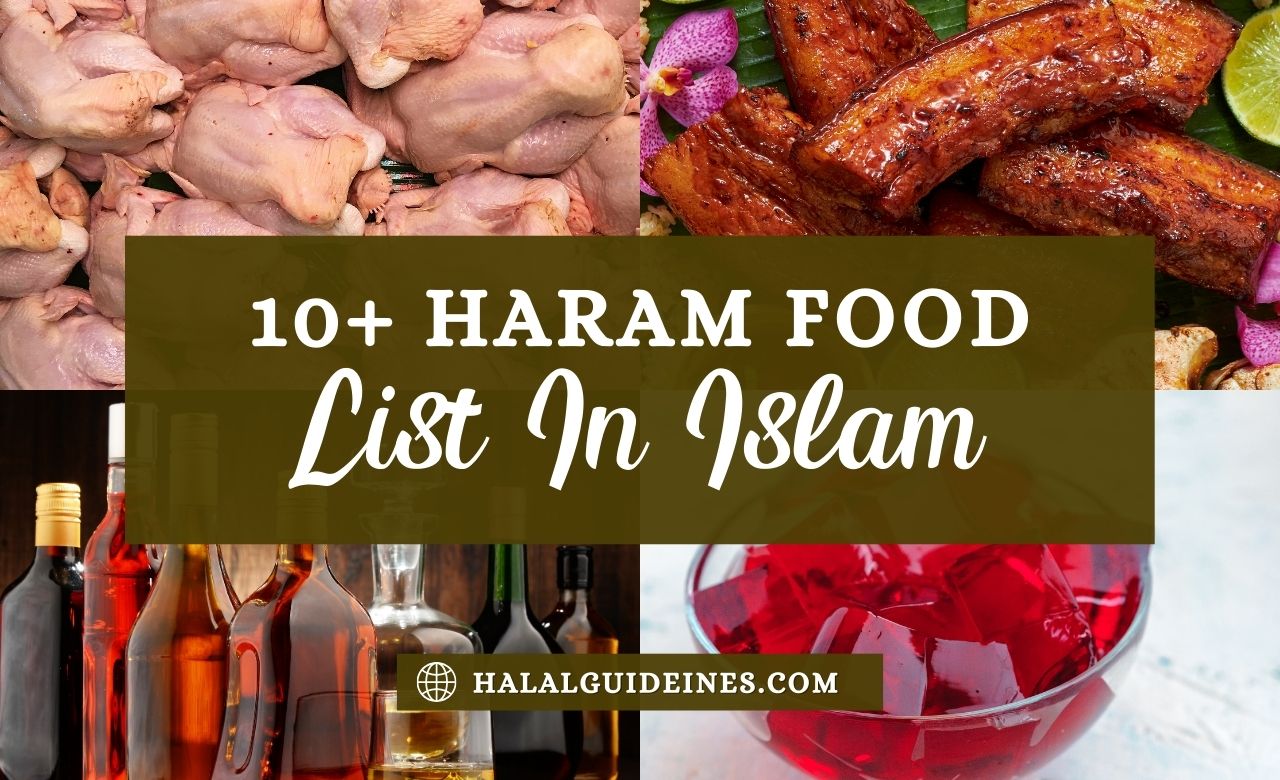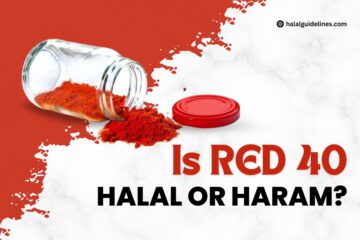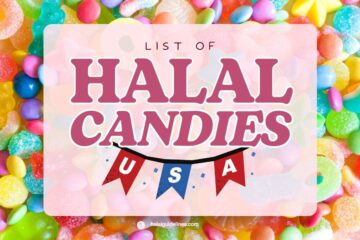In Islam, eating halal (permissible) food is a major part of practicing one’s faith. Equally important is avoiding haram (forbidden) foods. The Quran and Hadith clearly outline what foods are considered haram in Islam.
Avoiding haram food is not only a matter of faith but also a way of maintaining purity in one’s lifestyle. Understanding and following these dietary rules is essential for every practicing Muslim.
Here we will provide a complete and clear list of haram foods that Muslims must avoid:
1. Dead Meat (Not Properly Slaughtered)
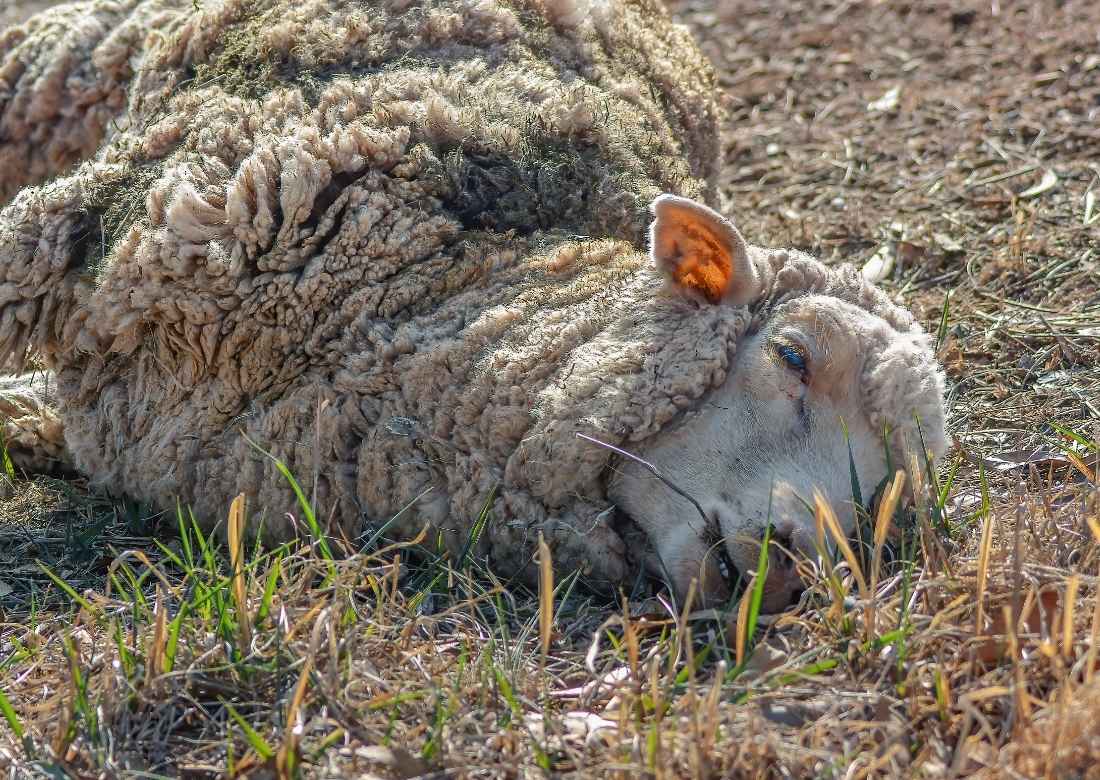
Any animal that dies on its own, is found dead, or is not slaughtered according to Islamic rules with the name of Allah mentioned, is considered haram. Proper Islamic slaughter is required to make an animal lawful to eat, and neglecting this makes the meat impermissible.
2. Blood
Consuming blood in any form, raw or cooked, is strictly forbidden in Islam. The Quran strongly prohibits its intake, considering it impure and harmful for both physical and spiritual well-being. This ruling includes any use of blood in cooking, flavoring, or as an ingredient in any dish.
3. Pork and All Its Derivatives
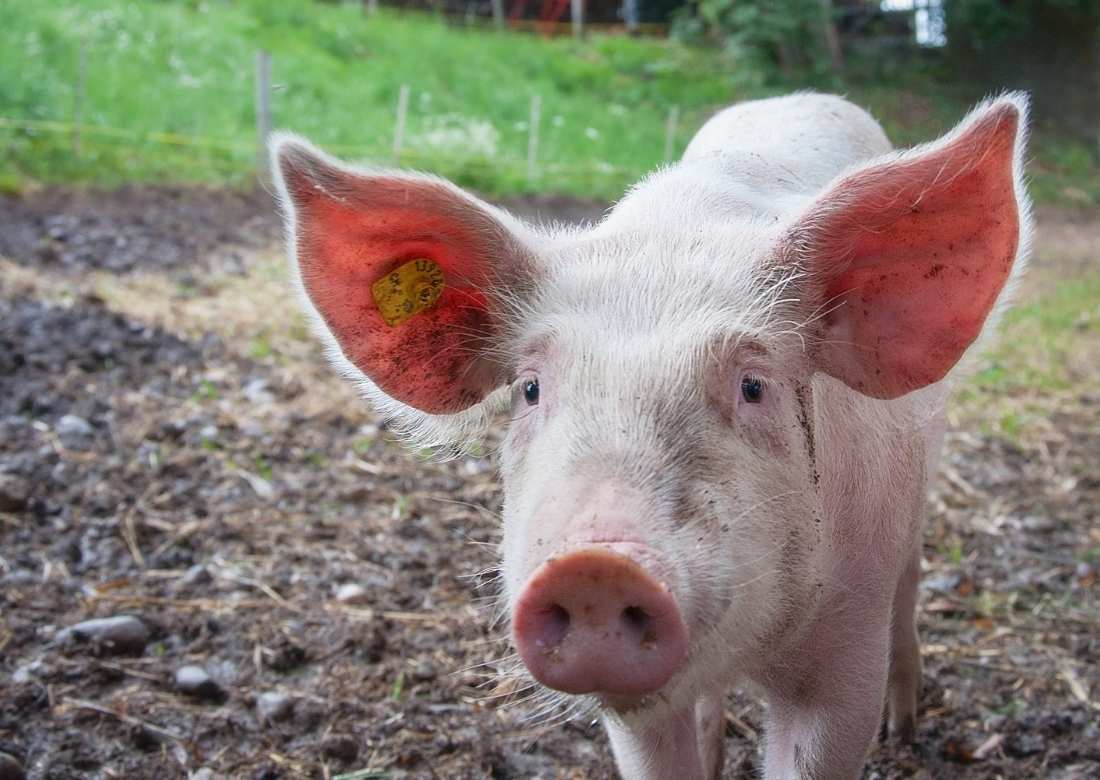
Pork is one of the most widely recognized haram foods in Islam. It is completely forbidden for Muslims to consume pork in any form. This includes not only the meat itself but also any products made from it.
Any food containing pork-based ingredients such as gelatin, enzymes, fat, or flavoring sourced from pigs falls under the category of haram and must be avoided.
- Pork meat (raw or cooked)
- Gelatin is derived from pigs
- Enzymes or flavorings made using pork extracts
- Any food that lists pork fat, lard, or bacon as ingredients
4. Animals Not Slaughtered in the Name of Allah
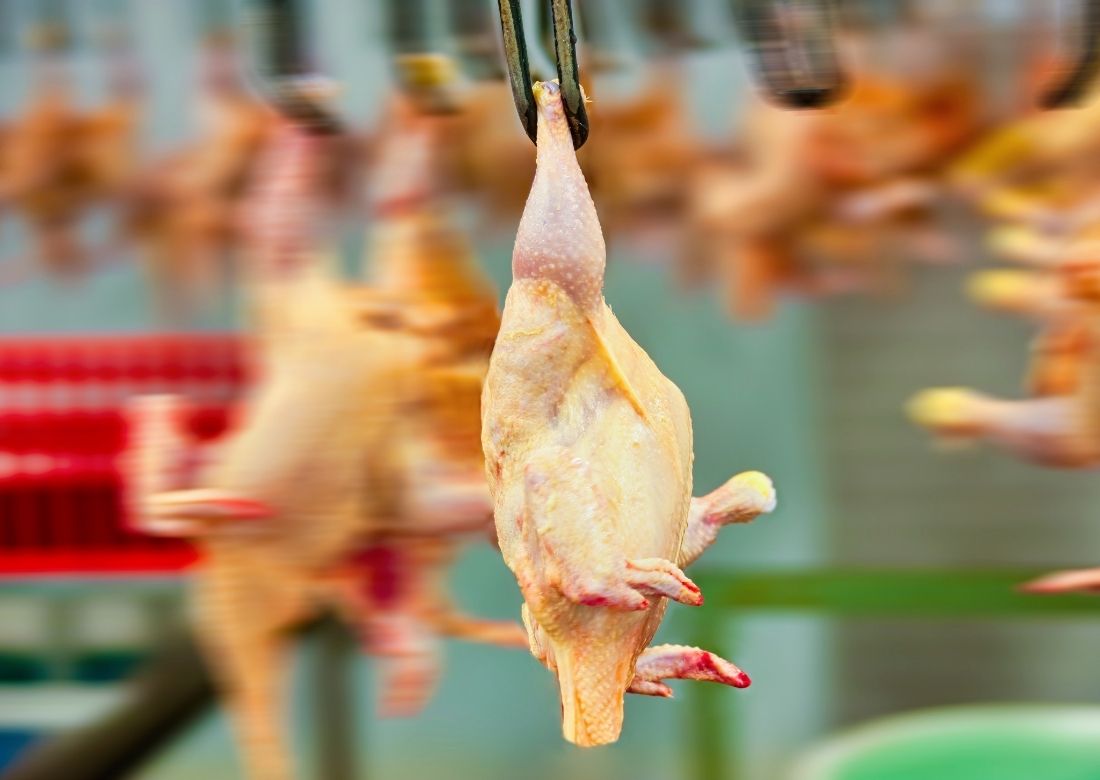
Even if the animal is generally considered halal, it becomes haram if it is not slaughtered in the name of Allah and by Islamic rites. This includes meat from suppliers or countries where the method of slaughter is unknown, uncertain, or performed in a manner inconsistent with Islamic practices.
Muslims are advised only to consume meat that is certified halal and properly labeled, ensuring both the method and the intention behind the slaughter meet the Islamic guidelines.
5. Carnivorous Animals
In Islamic dietary law, consuming carnivorous animals—those with fangs or claws is strictly forbidden. This includes predators like lions, tigers, leopards, wolves, and similar wild animals that hunt and kill for food.
These animals are considered impure and harmful for consumption, both spiritually and physically, due to their aggressive and bloodthirsty nature.
6. Birds with Talons
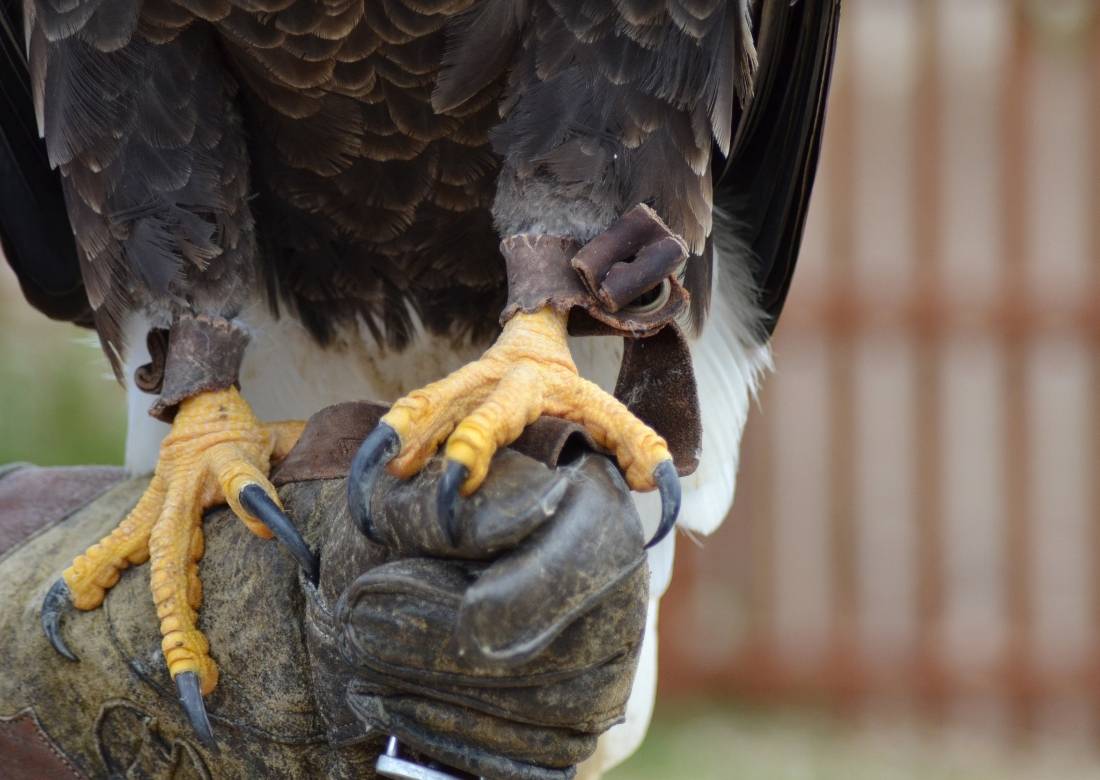
Birds that hunt with talons, such as hawks, eagles, falcons, vultures, owls, and kites, are also considered haram. These birds are predators and feed on other animals, which is why their consumption is not permitted in Islam.
They often consume dead meat or kill their prey with their claws, making them unsuitable for halal consumption.
7. Alcohol and Intoxicants
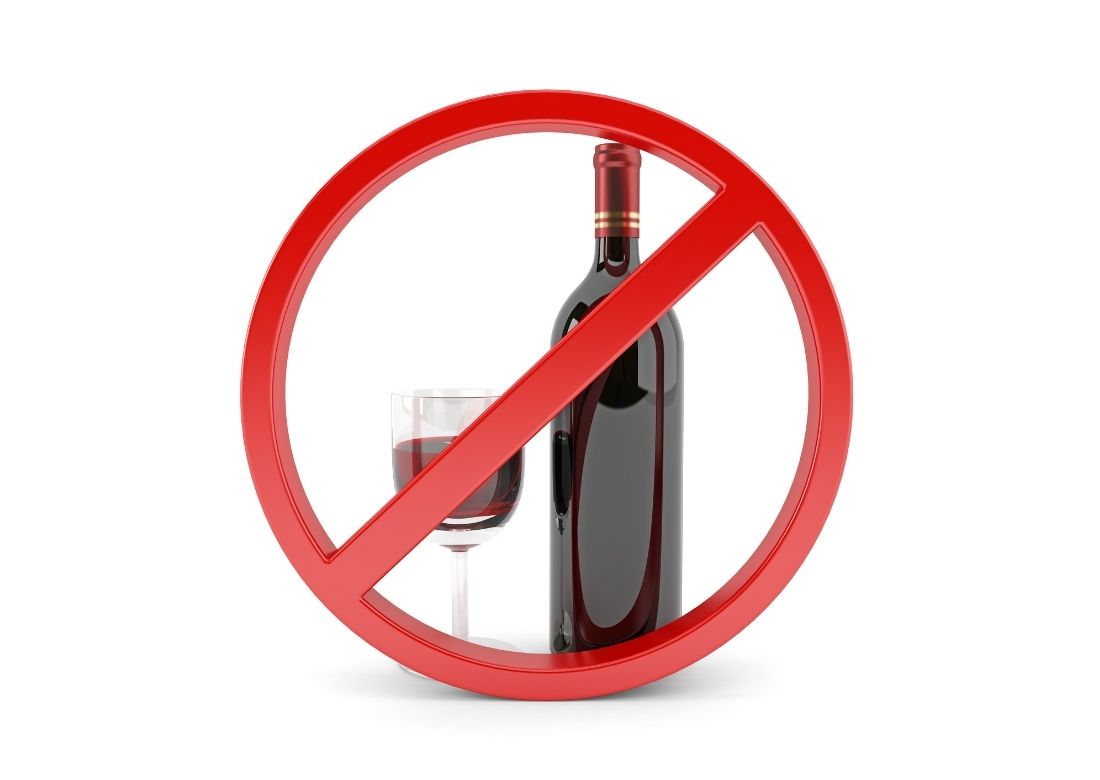
Anything that intoxicates the mind is haram. This includes all kinds of alcoholic beverages and intoxicating drugs. Also, alcohol in food is haram if it causes intoxication or is added intentionally.
8. Halal Animals Contaminated with Haram Substances
Even halal animals like cows or chickens become haram if they are fed haram food or slaughtered improperly. Cross-contamination with haram substances during processing also makes the food haram.
9. Foods Offered to Idols or in the Name of Other Gods
Any food that is dedicated or offered to idols, spirits, or false gods is strictly forbidden in Islam. This includes offerings during rituals, ceremonies, or cultural practices that involve invoking names other than Allah. Such foods are seen as spiritually impure and must be avoided entirely by Muslims according to Islamic teachings.
10. Insects and Reptiles
Insects such as scorpions, ants, flies, and beetles are haram, as they are considered impure and not suitable for human consumption. Reptiles like snakes, lizards, crocodiles, and chameleons are also prohibited in Islam due to their predatory nature and lack of proper slaughtering methods.
11. Improperly Processed Gelatin and Enzymes
Gelatin and enzymes derived from haram animals are not permissible. Only those derived from halal sources and processed according to Islamic guidelines are allowed.
12. Food Cooked with Haram Ingredients
Even if the main dish is halal, using haram substances like alcohol, pork-based flavorings, or non-zabiha meat makes the entire meal haram.
Complete Awareness of Haram Food Categories in Islam
To follow halal guidelines, it is essential to understand what foods are haram in Islam. This includes examining not just the main ingredients, but also the processing methods, additives, and sources. Always check labels, ask for details in restaurants, and ensure your food aligns with Islamic dietary laws.
Staying Committed to Halal Eating and Avoiding Haram Choices
Staying away from haram food is a way to protect your faith and body. As Muslims, we are commanded to eat what is pure and lawful. Learning about haram foods helps make conscious choices every day, in case you’re shopping, dining out, or preparing meals at home.
Always read ingredient labels, look for halal certification, and when unsure, choose to be cautious. Remember, the goal is to seek Allah’s pleasure in every aspect of life, including what we eat.
If you are a business or individual looking to get certified or want to ensure your products are halal-compliant, you can get help from experts. Check out our Halal Certification Services and request a quote at Halal Guidelines. We’re here to guide you every step of the way.

